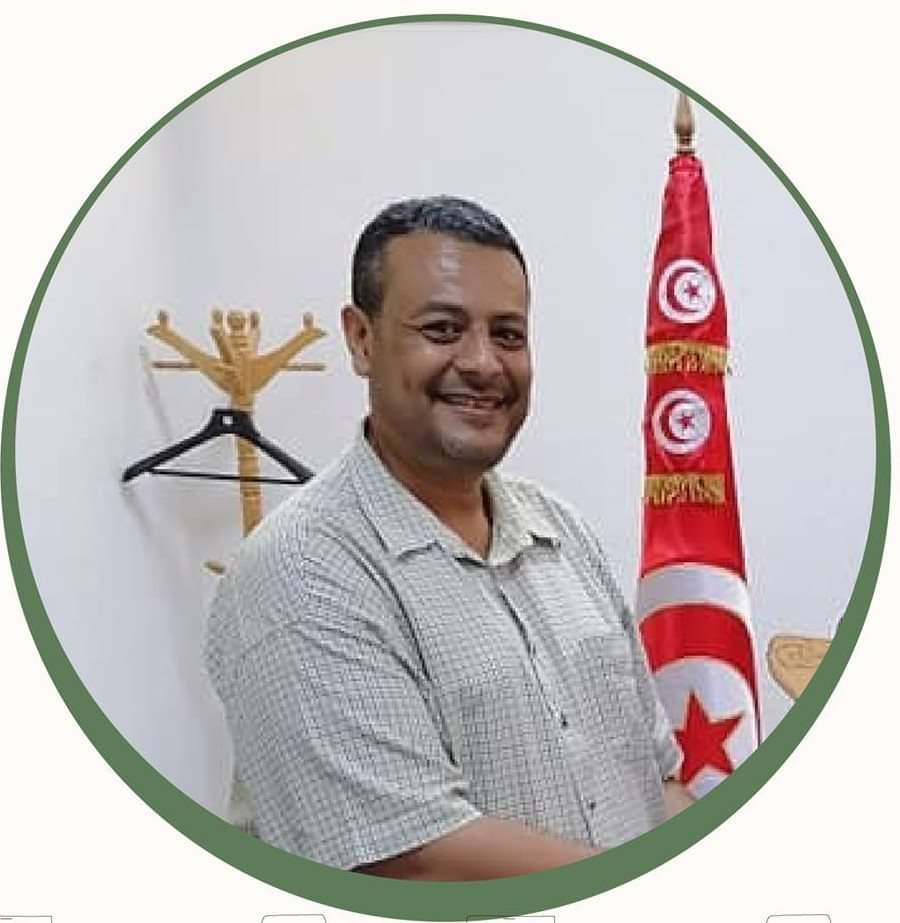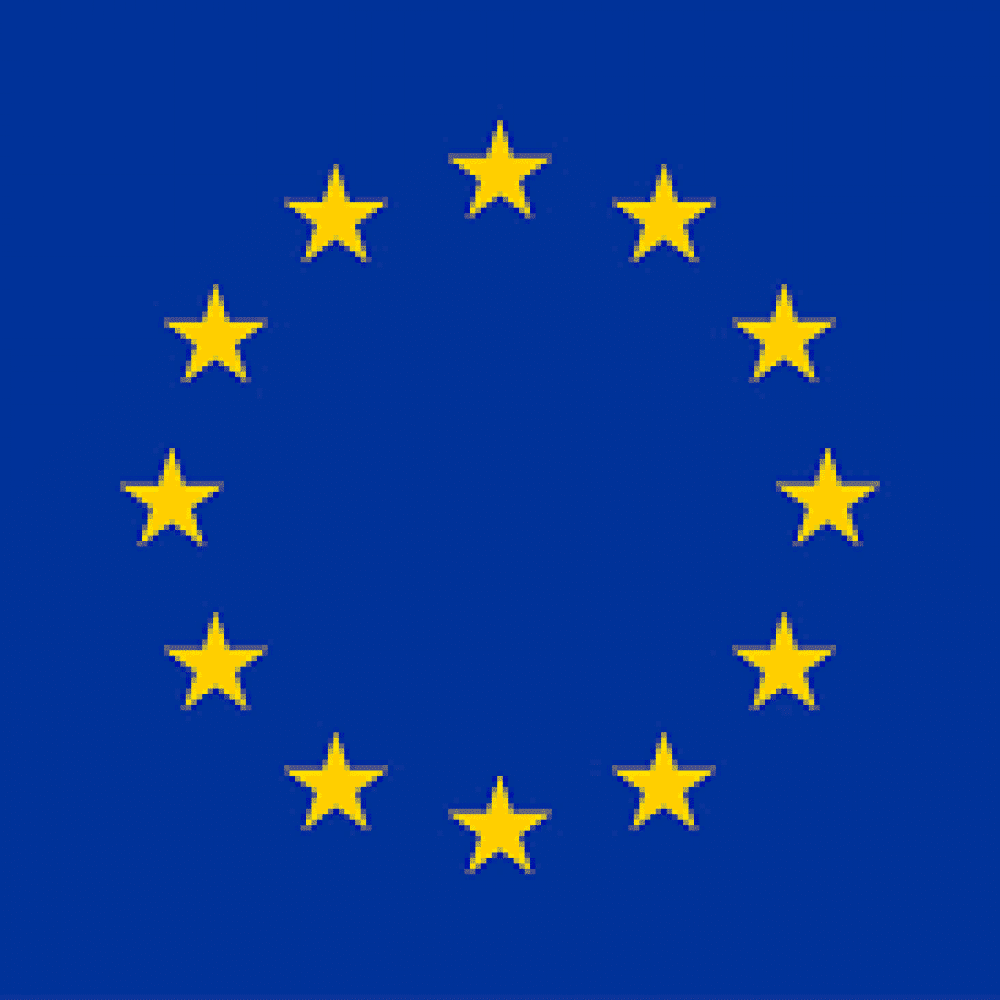Between walls – Omar Ben Amor (Art Acquis) : “Access to culture to every detainee at any time”
*The Alternative project is funded by the European Union*

Interview with Walid Bouchmila, president of the association Horizon d’Enfance.
Within the “Projet Alternative”, implemented by Avocats Sans Frontières and ATL MST SIDA, Horizon d’Enfance sets up cultural activities at the Gabès prison, training courses for prison staff and qualifying training courses (plumbing, plastering, culinary arts and pastry making) for prisoners. The latter also benefit from training in entrepreneurship, support in setting up micro-projects and psychological follow-up to prepare for release. The overall objective of the project is to contribute to the rehabilitation and reintegration of the inmates of the Gabès prison.
Can you introduce yourself and present the work of Horizon d’Enfance?
I am Walid Bouchmila, social worker by training and president of Horizon d’Enfance. Our association takes care of children who live in the street, and offers social, psychological and educational support to these young people and their families. The idea is to achieve economic emancipation and the social empowerment of those families.
What is the work of Horizon d’Enfance in prisons? Why do you think it is necessary to carry out this project?
When working with these young people, we ask them: “How did you get to this point? ». And many of these young people tell us that one of their parents (often the father) is or has been imprisoned. The absence of the parent has facilitated the precarious situation of these families. Therefore, if we want to work on this, we need to work with the persons incarcerated as part of a reintegration process and to prevent recidivism and delinquency.
If we are carrying out this project, it is to help families, especially from an economic point of view, through the work integration of fathers. The final objective is to get out of vulnerability.
What is the situation in Gabès prison today (prison population, conditions of detention etc…)?
The amount of detainees vary a lot: when we started working in Gabès prison (in January 2020, editor’s note), there were 300 prisoners. We saw this figure rise to 600, in particular because Gabès prison was one of the prisons that received new detainees for quarantine during the first wave of COVID-19. At the moment, there are around 400 prisoners, only men. It is planned that Gabès prison will eventually build a pavilion to accommodate women.
As for the conditions of detention, the prison has had to refurbish many of the spaces initially dedicated, for example, to theatre and cinema workshops. These spaces have become quarantine reception areas for new detainees.
Overall, overcrowding is still the norm at Gabès prison; although to my knowledge there have been very few cases of COVID in the prison – only two people diagnosed at the time of their quarantine. Today, the situation is much the same – in terms of the health measures applied – with a strengthening in recent days after a certain slackening during the second wave.
What is the profile of the detainees (socio-economic profile/ criminal record) that you have been able to meet in the framework of the project?
There are all kinds of profiles in Gabès prison, from people who can’t read or write to the head of a bank branch. In terms of sentences, this ranges from a few months in prison to life imprisonment; and the inmates range from 18 to over sixty years of age. Globally, all social categories are present, with a majority of young prisoners (under 40 years old), often there for sentences of 3 to 5 years maximum and for offences related to drugs, theft, fights… The rate of recidivism is very high, it is about 40% from what we have seen.
What activities have you implemented to this date?
We have implemented training courses for prison staff, completed cultural activities (film, theatre and music workshops). Today, qualifying training courses are underway in plumbing, plastering, pastry making and culinary arts. At the end the trainees will have an examination to certify their skills – we still need to discuss with the Directorate General for Vocational Training and the prison how we will pass these tests (in or out of the prison).
Then, depending on who is going to be released soon, we will help to prepare the release with the prisoner and the family and support them to create a micro-project. Prisoners will also have entrepreneurship training and coaching by the psychologist to prepare them for release.
What has been difficult has been the selection of the prisoners who were going to participate in the qualifying training because only prisoners who have already been judged are entitled to it, not the others [pre-trial detainees]. Pre-trial detainees make up the majority of the prison population. Many of the prisoners on trial have very long sentences, so there is no point in training them now. We have therefore done our best to work with prisoners who are more or less released within the project’s timeframe, although this does not represent the majority of our beneficiaries.
What has been the feedback of prisoners and prison officers who have participated/are participating in the project?
The reactions are very positive from the prisoners’ side: training courses such as cultural activities are very much appreciated, especially because they allow them to have some time to be free and busy, in a prison where there are generally very few activities to do. As for the prison staff, they were resistant at first because we were the first association to enter the prison. But little by little we managed to gain their trust. They became aware that the project was beneficial for them as well as for the prisoners. They came to appreciate our work and today we are well received.
The question is the sustainability of the project. There are prison officers who attend the qualifying training courses in order to be able to take over afterwards. But the prison management explained to us that the staff numbers were too small to really allow us to detach someone from the staff to do this. Also, what we noticed was the lack of sports activities within the prison, a lack that we should try to cover via another project for example. We could also do other training courses. And at the prison of Gabès, there is a large piece of land of two or three hectares that could be used for an agricultural project.
What is the feedback from Horizon d’Enfance?
I will answer in two parts. If I had been asked the question eight months ago, I would have had a rather mixed answer. Indeed, the beginning of the project was very chaotic, we encountered many obstacles and we were not used to working in such a “restrictive” framework. Everything had to be planned, validated at the central level… It also took a long time to sign the agreement. But now everything is going well: access to the prison is easy, even without an appointment you can come to the prison; we are very involved in the work of the prison. One of the heads of department even said to me “I consider you a colleague”. For our part, we have understood the problems of the prison staff, their reticence towards us; the officers often feel wronged, they have the feeling that the judges are rather on the side of the prisoners if there is a problem and they have the impression that the projects that have been set up are always for the prisoners.
When they saw our project and realised that they had not been “forgotten”, they realised that it would be beneficial for everyone. When you do a project in prison, you really have to think about everyone.
To what change do you wish to contribute through your action?
There needs to be an awareness of the importance of cultural activities, sports etc. in the prison to reduce tensions between prisoners and prison staff. In fact, we have managed to set up a partnership with the Gabès Drama Centre: a drama teacher gives classes in the prison, and we have managed to ensure that this activity is maintained after our visit.
The staff themselves say that the activities have a very positive impact on the atmosphere in the prison. Also, the training in culinary arts has improved the quality of the meals: the inmates in training cook for everyone one day a week. This is very much appreciated, as are the cakes that come out of the baking workshops every day.
What was the impact of the health crisis linked to COVID-19 in prison during the first and second waves?
During the first wave, there was a ban on access, which caused a total shutdown of activities. But we were the first to resume our activities. During the second wave, we were able to continue our activities normally.
What reforms do you see as necessary in the penal and prison system?
What is needed is to reduce the prison population, for example by setting a maximum number of prisoners in prison. We also need to avoid putting people in prison in pre-trial detention as much as possible and encourage judges to hand down alternative sentences. The probation office in Gabès is not yet very operational, only a few people are monitored there. I haven’t seen any major progress in this office, but this is probably due to the means at their disposal. And the dynamics take time to change…
What is the role of civil society organisations in prisons? In your opinion, how could this civil society-prison dynamic be integrated into sustainable action?
Civil society has a very important role. Our project was able to bring a very positive dynamic within the prison of Gabès, we even had proposals from the staff for other project ideas. The role of the civil society is also to help the prison staff to improve their work in order to provide better care for the inmates. What is really needed is a balance between activities for prisoners and activities for staff.
Now we need to build this dynamic over time. We know that in Gabès, other civil society organisations would be interested in working with the prison, within the prison. As far as we are concerned, we don’t yet know if we will be able to continue access after the project (access agreements in prison are limited in time, editor’s note). Perhaps it should be the prison directors who can establish conventions? Should this prerogative be decentralised to the regional level?

The L’Alternative project is funded by the European Union



